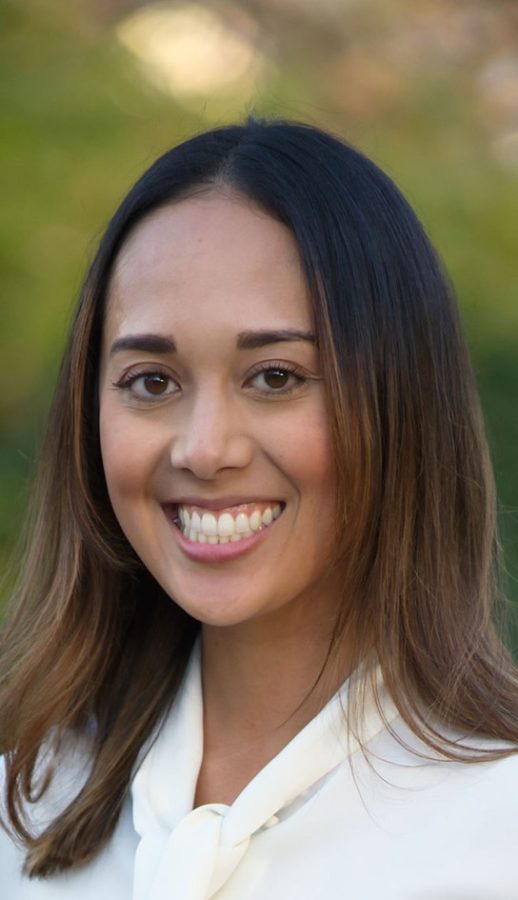The who, what, where, how and why of advisor mentorship

By Amie Agamata
Looking back on my accolades over the past ten years in financial services is humbling. I owe a lot of my success to working with mentors.
Mentorship is a two-way street between mentor and mentee. And while it's ultimately up to the mentee to be willing to take action on their mentor's advice, I am where I am today because of the guidance given by my mentors.
Mentorship can look different depending on the relationship. I've been fortunate to work with a few mentors, and each has provided invaluable insight and perspective that has helped me accelerate my career. I recommend working with a mentor to anyone looking to grow in their career or further their development overall.
Here are the 4 W's and H around mentorship:
Who? A mentor can be anyone you look up to or admire. Generally, mentors are older than mentees because they have more life and career experience. However, age differences aren't necessary. It's possible to have a peer or maybe even someone younger than you as a mentor. For example, if you're switching careers in your 40s and your mentor is in their 30s but has been in the job you're interested in since they've been in their 20s.
Your mentor can be anyone who adds value to your personal or professional life from their advice. The mentee should aspire to be like their mentor, and the mentor should want what's best for their mentee and, ideally, have no conflicts of interest.
What? Mentorship is a working relationship between a mentor and a mentee where the mentee seeks advice from the mentor in an area of expertise. They can be formal or informal relationships, depending on the mentee's goals. Formal mentorships often meet consistently with action items or "homework" after each session. It's similar to coaching. Informal relationships are more casual. They're typically ad-hoc meetings with suggestions for your next steps. Both mentorships are valuable. Formal mentorship may be more helpful if you want to be held accountable.
Where? Finding a mentor is easier than you think. Start with where your passion lies. If interested in a specific industry, join its association, start networking, and get involved. I met one of my mentors through serving in leadership. Some associations offer mentorship programs and will match you with someone open to being a mentor.
Your current workplace may also offer something similar, or if there's someone you look up to and respect at work, try to get to know them. A mentor could be a family friend in the same business or not even in the same industry, but someone successful. My former boss was a family friend and became my first mentor when I started working with him. I've also reached out to other family friends for career advice. Some were in the same industry, and others were not.
Each offered unique and valuable insight. LinkedIn is also an excellent resource for finding a potential mentor because you can request to connect with anyone; you can search for people you don't currently have any "first" connections with but aspire to be in their field or company.
It's easy to start a conversation by sending a message to meet in person or by phone to ask questions and develop a relationship. You may not get a response right away, so be persistent or reach out to multiple people at once. Someone will likely reply and be open to speaking with you.
Why? Mentors are the shortcut to success. You can learn from their failures and save time by not making the same mistakes yourself. It's important to remember all mentors start where you are at the beginning and have years of experience that make them successful.
They are a wealth of knowledge and will tell you precisely what you need to do to be successful. The hard part isn't listening; putting in the time and following their advice takes a lot of work. However, if you follow their advice, you will likely succeed. You don't have to work with a mentor to become successful, but it may cost you more failures and time had you not.
Mentors can also help connect or refer you to prospective jobs or companies since you'll be top of mind if a position opens up within their company or across their network. That's how I ended up at my current job; I reached out to a trusted advisor for career advice, and he referred me to someone in his network. It's not always about who you know, but it doesn't hurt!
How? Before you pursue working with a mentor, determine what you'd like to achieve through the relationship. Be intentional, set goals for yourself, and then go from there. For example, suppose you plan to start your own financial planning company. In that case, find a mentorship program through your local Financial Planning Association chapter or take it upon yourself to network.
If you don't have a matching program available, connect with a few financial planners who own their practice by attending a networking event or sending a request on LinkedIn! Then, ask each to set up a phone call or grab a coffee if they live in your area.
Before you meet with them, be prepared - research them and put together at least 3-5 questions, either about their experience or general questions. I always ask, "What would you recommend someone thinking about X do?" or, "What else should I be doing to achieve X?" Open-ended questions are best to get the most out of your conversation. You must find someone you get along with, look up to, and is willing to invest their time in you.
Once you find the right person, ask them if they'd be interested in mentoring you, then set recurring times to meet. Mentorship takes consistency and vulnerability. You'll not only learn the steps of how to achieve your goal, but you'll also learn much about yourself. Know that your mentor will learn something from you too.
Amie Agamata is a CFP in San Diego, CA. She is the 2023 NexGen Chair for the Financial Planning Association, nationally.
FPA NexGen, a community of the Financial Planning Association® (FPA®), aims to provide support and collaboration for those professionals new to the financial planning profession. With more than 2,500 like-minded young professionals, members of FPA NexGen are ready to share their experiences and further the future of the financial planning profession. Learn more about our engaged community and join the conversation on Twitter.






Medicare beneficiaries still need high savings for medical costs
Why buying life insurance is an act of love
Annuity News
- Great-West Life & Annuity Insurance Company Trademark Application for “EMPOWER READY SELECT” Filed: Great-West Life & Annuity Insurance Company
- Retirees drive demand for pension-like income amid $4T savings gap
- Reframing lifetime income as an essential part of retirement planning
- Integrity adds further scale with blockbuster acquisition of AIMCOR
- MetLife Declares First Quarter 2026 Common Stock Dividend
More Annuity NewsHealth/Employee Benefits News
- New Findings from University of Colorado in Managed Care and Specialty Pharmacy Provides New Insights (Primary Care Physicians Prescribe Fewer Expensive Combination Medications Than Dermatologists for Acne: a Retrospective Review): Drugs and Therapies – Managed Care and Specialty Pharmacy
- Reports Summarize Health and Medicine Research from UMass Chan Medical School (Supporting Primary Care for Medically and Socially Complex Patients in Medicaid Managed Care): Health and Medicine
- New Findings Reported from George Washington University Describe Advances in Managed Care (Few clinicians provide a wide range of contraceptive methods to Medicaid beneficiaries): Managed Care
- Reports Outline Pediatrics Study Findings from University of Maryland (Reimagining Self-determination In Research, Education, and Disability Services and Supports): Pediatrics
- Rep. David Valadao voted to keep health insurance credits but cut Medicaid. Why?
More Health/Employee Benefits NewsLife Insurance News
Property and Casualty News
- NEXT Insurance Rebrands as ERGO NEXT Insurance, Reflects Next Phase of Growth as a Leading Small Business Insurance Provider
- Cambridge Mobile Telematics Launches DriveWell Fleet
- AM Best to Co-Sponsor and Participate at 2026 Emerging Leaders Conference
- ATTORNEY GENERAL BROWN ANNOUNCES $850,000 IN RESTITUTION FOR MARYLAND CONSUMERS IN SETTLEMENT WITH TITLE INSURANCE COMPANIES FOR PAYMENTS FOR REFERRALS
- Illinois quick hits: Illinois auto insurance rates dropping
More Property and Casualty News